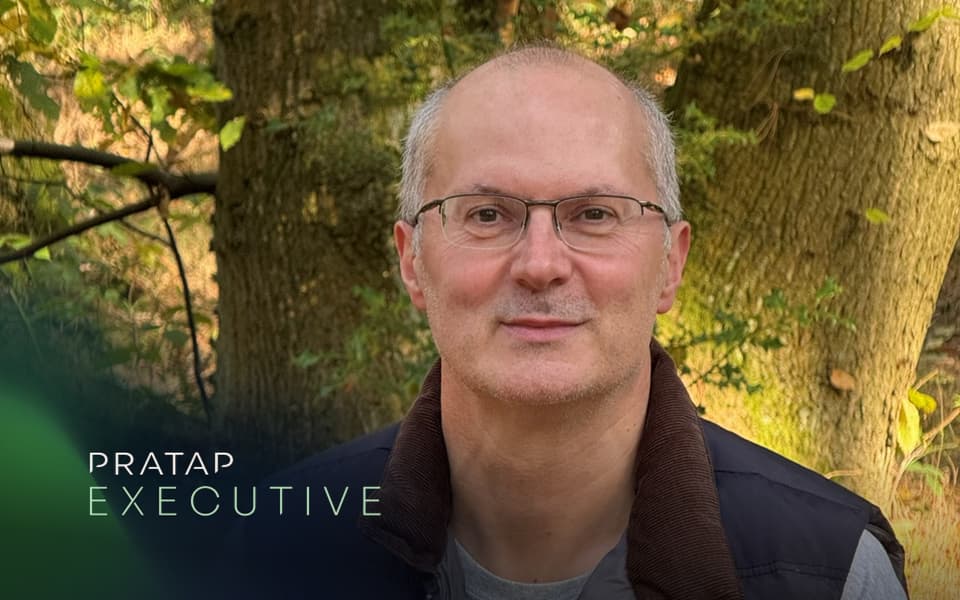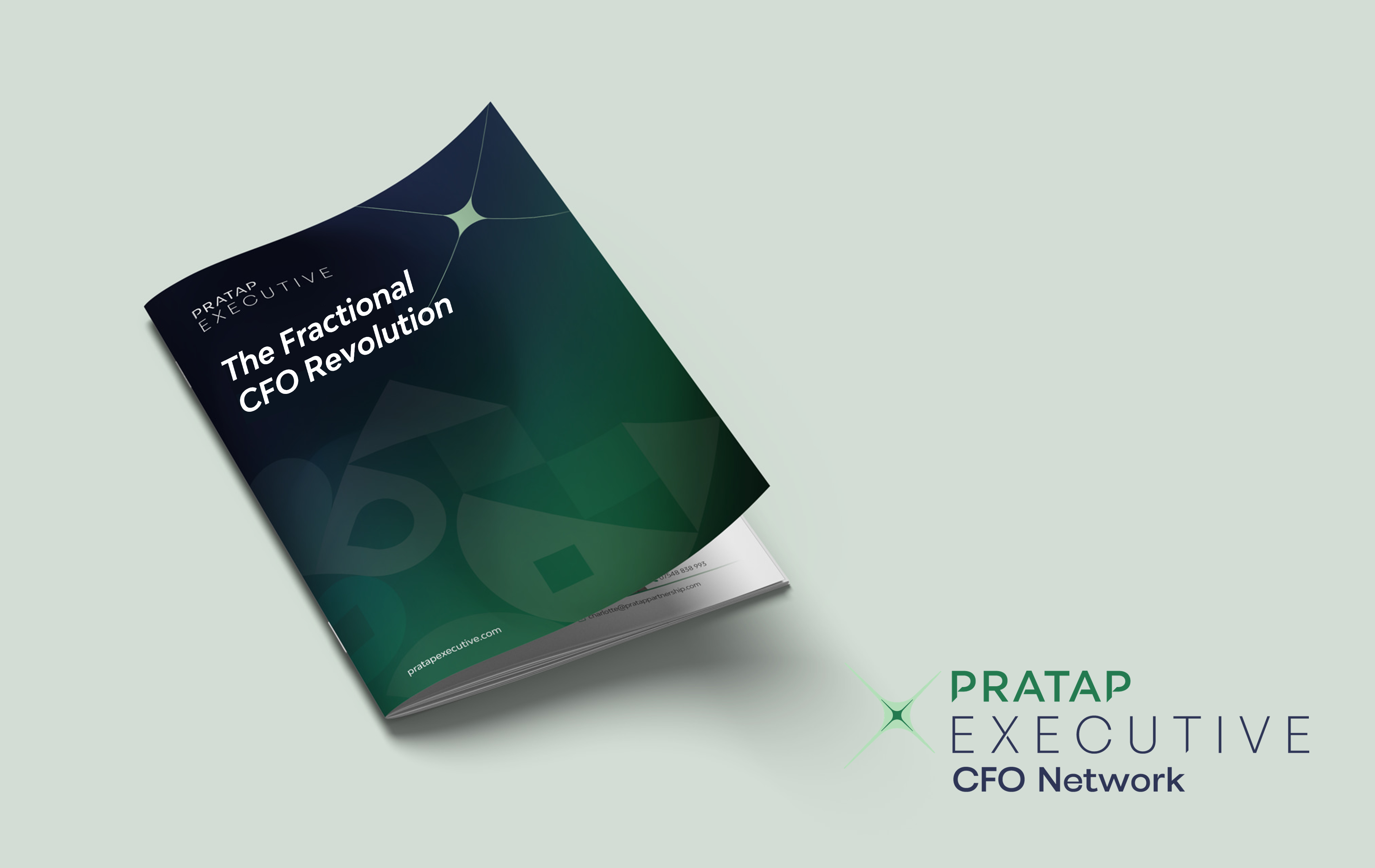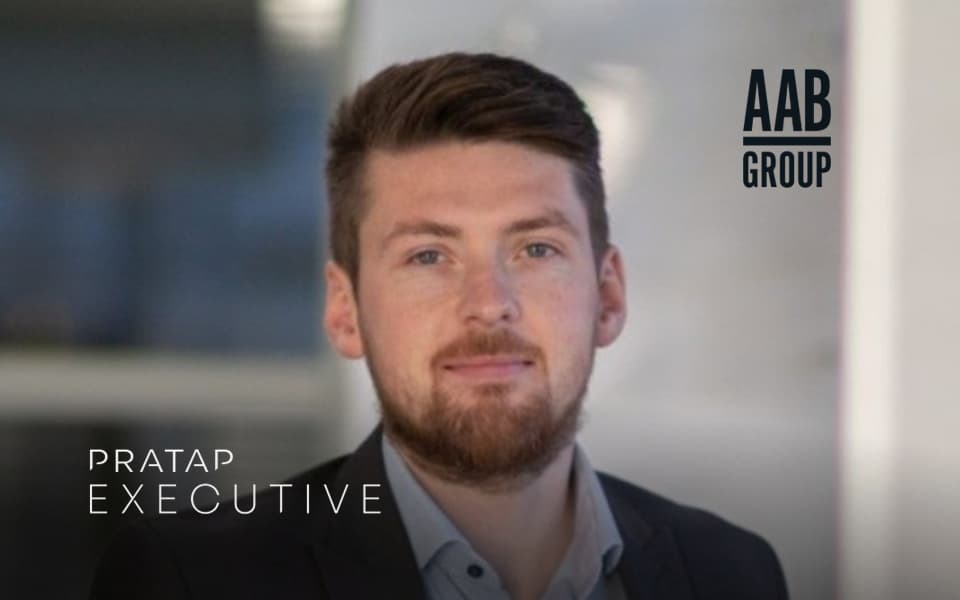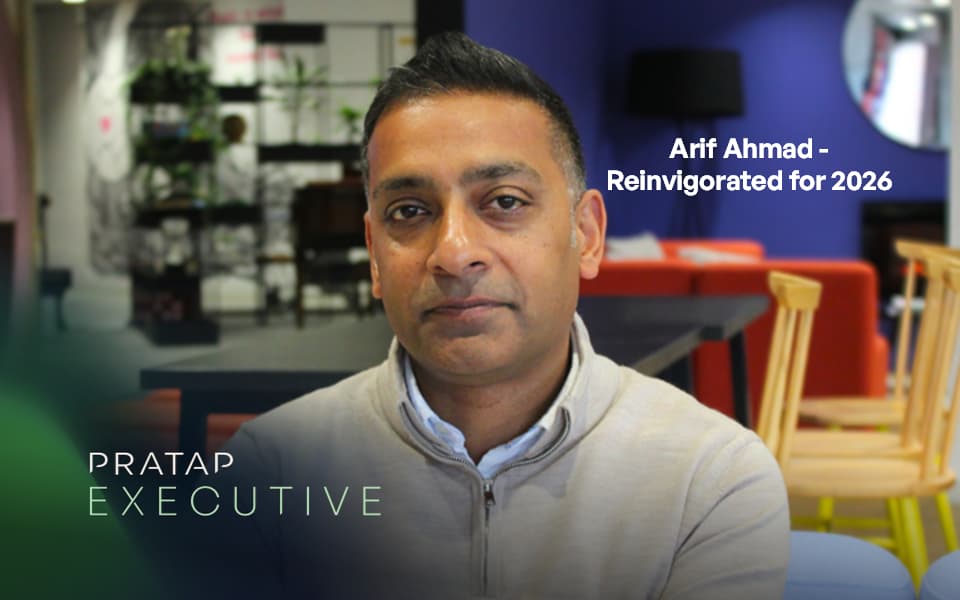James Locking on People, Purpose and the Power of Patience
James Locking, newly appointed Group Finance Director at HEB Group in Sheffield, shares insights from a distinguished career spanning multiple sectors. He reflects on the importance of patience, trust, and people-focused leadership in building successful teams and lasting careers in finance.
James Locking on People, Purpose and the Power of Patience
James Locking, newly appointed Group Finance Director at HEB Group in Sheffield, shares insights from a distinguished career spanning multiple sectors. He reflects on the importance of patience, trust, and people-focused leadership in building successful teams and lasting careers in finance.

We are delighted to feature James Locking, who has recently taken up the role of Group Finance Director at HEB Group in Sheffield. James is one of our closest FD contacts and someone we have enormous respect for. Over the years we have been fortunate to work successfully with him on multiple occasions, helping him build high-performing finance teams and supporting him through four key career moves (including his most recent).
James epitomises the qualities of a modern, agile Finance Director - with experience spanning every ownership structure - plc, privately owned and not-for-profit organisations, and across sectors as diverse as building products, training & employment services, manufacturing, and now building services. Alongside this, he has demonstrated a strong commitment to his community through voluntary work, most recently as a Board Trustee and Chair of the Finance & Risk Committee at Rotherham Hospice.
In this interview, James shares his reflections on leadership, loyalty, and why patience, trust and a genuine interest in people are at the heart of every successful finance career.
You are just starting as Group FD at HEB Group in Sheffield. How have the first few weeks been, and what is it like looking for a new FD role in Yorkshire in 2025?
It has been great — I am really pleased to be part of a thriving company with fantastic people and strong growth ambitions for many years ahead.
Looking for a Finance Director role in 2025 was no different to any other time in my career — there are always opportunities out there, but patience is key. If you know it is the right time for a move, trust your network, trust your instincts and, in my case, trust great recruiters to help you understand the market and to recommend the right fit.
It can take time, but the right opportunity always comes. One time there was a five-month gap between the time I first decided that I wanted to consider a new role and the first opportunity coming along. That is nothing to be concerned about – it can take time and you have to remain patient and be confident.
My one piece of advice for any candidates going to an interview, is to spend some time focusing on the interviewer and breaking the ice with them. There is a preconception that the interviewer takes control and manages the candidate in the interview. I have always focused on being relaxed at the start of any interview, making sure the interviewer feels comfortable with me and then letting them hit their stride. Those first five or so minutes in the interview are so important.
You are the epitome of a sector-agnostic FD, moving across building products, training, not-for-profit, and now building services. How has this agility helped you to adapt and thrive across very different organisations?
Thank you! I have always believed that people skills and good communication matter more than sector specialism. My ability to build relationships, listen and adapt has given me the platform to move across industries successfully. Being hardworking, driven, and a genuine team player has been more important than being a technical expert in one specific field.
I understand that there are some sectors that have some technical challenges that are unique to them and that those skills can make a difference. That has not held me back. I have looked at every opportunity and considered the personality of the organisation, before the sector they specifically operate in.
We always respect the voluntary roles that finance leaders in our region take on. How has your experience as a Board Trustee and Chair of the Finance & Risk Committee at Rotherham Hospice been for you?
It is a real honour and privilege to support an organisation that provides such remarkable end-of-life care. The staff there are phenomenal — the compassion they show and the difference they make every day is truly inspiring.
My role as Trustee has reminded me just how much value finance leaders can bring to the not-for-profit sector. It is rewarding on a human level, and I would encourage any finance professional to give it a go — and it doesn’t have to be at a large charity. You will be surprised at how much you gain from the experience, both personally and professionally. I know that I have been able to make a difference to Rotherham Hospice and I have benefited just as much in growing my network and feeling the pride in being involved with such a superb organisation.
You trained at KPMG in Sheffield, a strong foundation for many finance leaders in our region. How did those early years shape your career, and what relationships from that time have stayed important to you?
KPMG gave me a brilliant grounding — learning about teamwork, developing confidence in my own judgement, and seeing what great and not-so-great leadership looks like. It has been almost 30 years since I qualified, but I still keep in touch with several people from those early days, including local Finance Directors like Stratton Brock (Stanley and current Sheffield District Chair for the ICAEW) and Brian Jackson (Greenray Turbines).
Passing my ACA exams was a significant event – celebrated in true Sheffield style! Back in the day, you had to phone the institute after midnight on the relevant Friday to see if you had passed. A group of us, including Stratton had decided not to find out but to go to the Leadmill instead. Unbeknownst to us, Stratton disappeared and phoned the institute pretending to be each of us – he came back to the bar / dancefloor at 2am to tell us that we had all passed! Needless to say, it was a pretty good night!
How have mentors, colleagues, and your professional network influenced your journey?
Immensely. I have been lucky to have great managers like Chris Walters (CEO at Pressure Technologies plc), who showed me the power of people-first leadership, and some other great colleagues who have become close friends.
I recognised early that building strong relationships with trusted recruiters like Nik and Gillian in the Pratap team pays off – Build relationships today for the support that you may need tomorrow.
I have learned that leadership is not about knowing everything — it is about listening, supporting, and helping others grow. I try to be a coach and mentor, not a micromanager. If you recruit talented people, trust them to do their jobs, back them when they make mistakes, and give them space to thrive, they’ll repay you tenfold. That’s what leadership is about for me. I am still very early into my time at HEB group, but I can see strength and potential in the team – in most teams there are people who have done well academically and who will go all the way to the top if they are lead and guided well. Ultimately, that responsibility has lied and continues to lie with me and it is nothing but a real privilege.
If you could step in as CFO of any organisation in the world for just one day, which one would you choose — and why?
My answer will not surprise you! I have always been a proud boy from Sheffield – never with the potential to be the CFO of Apple and I know it would not appeal to me. I love the level at which I operate. I know I am strong and comfortable where I am at and that I can make a contribution, so onto my answer….
….It would have to be Sheffield United — just to see how the club I have supported all my life is actually run! We are currently bottom of the Championship with just three points from nine games, four points adrift from safety and only three goals scored. So maybe it’s not the easiest place to step into right now — but that’s the life of being a Blades fan: full of ups, downs, and unshakable loyalty!
Joking aside, I would love to understand how a football club operates from the inside — how they plan for different scenarios, balance finances and strategy, and keep their people motivated through the highs and lows. How do they look at opportunities and manage risk? The question does say “Just one day” – given the current scenario at Bramall Lane that is probably enough!
Looking back across your career, what’s the most important lesson you would pass on to the next generation of finance leaders?
Recruit talented people for your team, trust them, and support their development. Don’t micromanage — coach, mentor and empower.
Finance professionals will always leave for new opportunities – they only ever leave unexpectedly for two main reasons:
- They believe they are not paid enough – you may or may not be able to change that
- They are poorly managed
Make your team a great place to work and they will deliver great results. If you get the communication, culture and respect right, everything else will likely follow.











.jpg)